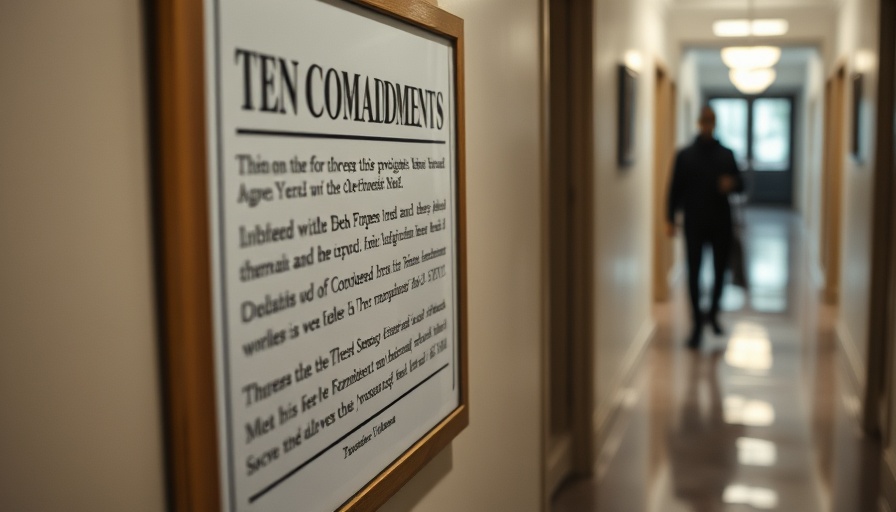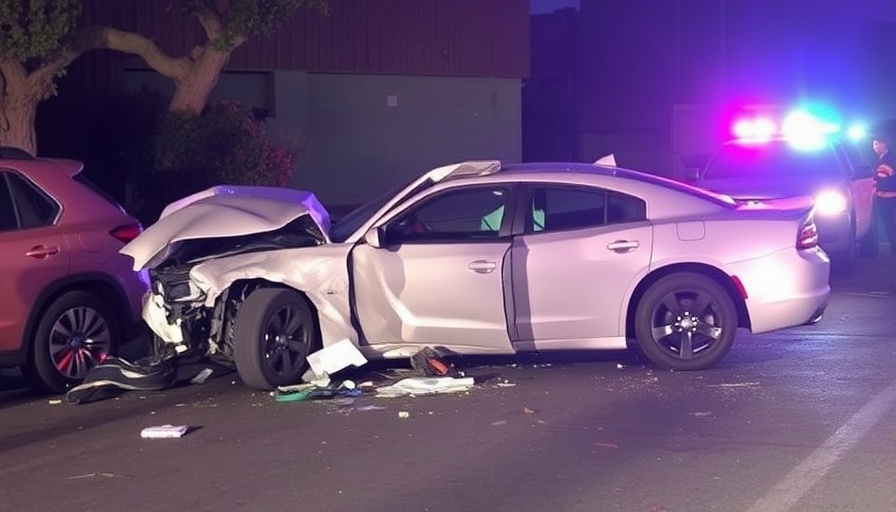
A Landmark Ruling on Faith and Education in Louisiana
A significant decision was announced by a panel of three federal appellate judges who ruled against a Louisiana law mandating the posting of the Ten Commandments in public school classrooms. This ruling is hailed as a substantial victory for civil liberties advocates, firmly asserting the long-standing principle of separation between church and state.
The Implications of the Court's Decision
On one hand, supporters of the law, including some prominent Republican figures, claim that the Ten Commandments are historically significant and can coexist within educational spaces. They argue that the teachings found in these commandments have had a vital influence on legal frameworks and moral codes in the United States. On the other hand, opposing voices, like those from the ACLU, highlight the potential for these displays to marginalize students from diverse religious backgrounds, underlining that public education should be a space that welcomes everyone, regardless of their faith.
Understanding the Legal Landscape
As stated by Heather L. Weaver, a senior attorney at the ACLU, this ruling underscores the importance of public schools not being sanctuaries for any particular religion. "Public schools are not Sunday schools," she articulated, emphasizing that educational environments must be inclusive and respectful of all students' beliefs. Yet, the ruling has sparked discussions regarding its applicability across the entire state of Louisiana, with varying interpretations surfacing from different stakeholders.
What Comes Next?
The ruling has prompted Louisiana's Attorney General Liz Murrill to express dissent, arguing that the decision may not bind every school district universally, advocating potentially for an appeal that could reach the Supreme Court. Such developments could ignite further debate over the role of religion in educational institutions and set precedents that may affect students and educators nationwide.
The Broader Impact on Civil Liberties
This case emphasizes a critical conversation about civil liberties and public education in America. As religious influences subtly seep into various sectors, the importance of safeguarding secular environments in educational settings cannot be overstated. Many similar lawsuits across the nation reflect an ongoing struggle to maintain the delicate balance between personal faith and public education’s constitutional foundations.
The Role of Parents and Community
In light of the ruling, parents are encouraged to engage actively in discussions regarding educational content in schools. Openness in communicating with educators and school boards will ensure that the diverse needs and rights of students are prioritized. For communities, this is a moment to reflect on the values being imparted through education and advocate for inclusivity.
Fostering Discussions About Religion in Schools
In our rapidly changing societal landscape, schools remain pivotal spaces for dialogue about beliefs and values. While legal actions like this ruling are necessary for protecting the rights of all students, it also opens the door for meaningful discussions about how we teach religion ethically and inclusively. Emphasizing the importance of various perspectives could enrich students' understanding of the world while upholding public educational values.
As this situation continues to unfold, it presents a unique opportunity for individuals and communities to reflect deeply on the intersection of faith, law, and education. This reflection can lead to actionable discussions about civil liberties that resonate far beyond the confines of classrooms.
 Add Row
Add Row  Add
Add 



Write A Comment